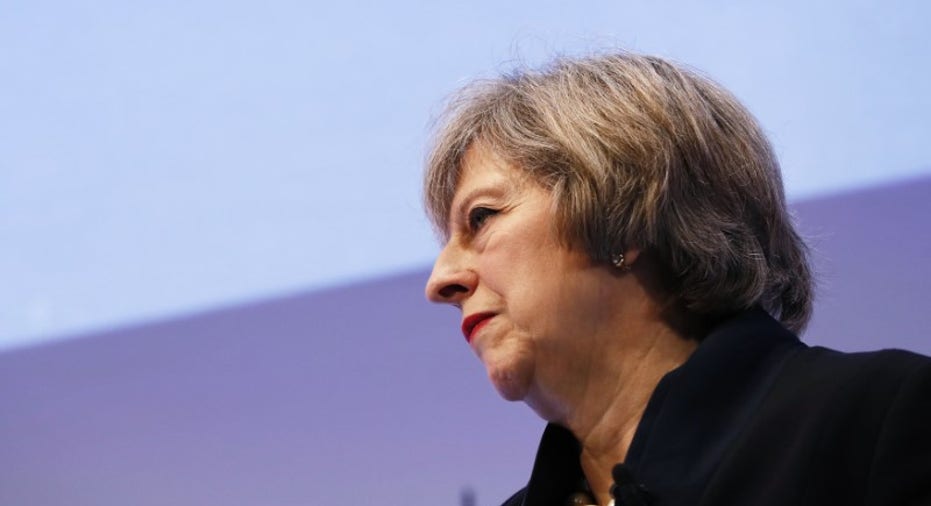Brexit bridge deal for banks nice in theory, tough in practice

LONDON – Banking executives have welcomed hints that Prime Minister Theresa May will push for a transitional period to help them adjust to Britain's exit from the EU but they fear such a deal might not work in practice.
With banks planning for life after Britain leaves the European Union, the executives said a transitional deal may be too difficult politically because of opposition from euroskeptic British lawmakers and the need for the remaining 27 EU nations to pass legislation in their parliaments."It is going to be a really tough ask. I think the government may find it difficult to get support," said one executive, who has spoken to ministers. "It may not work politically."The clock is already ticking as banks based in London finalize plans to potentially shift some operations to other European countries so they can still serve EU customers.��Some may be tempted to move next year given the uncertain status of any transitional deal and the time it would take to relocate.
As a cornerstone of any transitional arrangement, banks want the government to reach a quick deal to preserve passporting - which allows them to sell services and products freely across the EU - for up to five years.May pledged on Monday to address business concerns that Britain could fall off a "cliff edge" - a sudden exit from the EU - in 2019, hinting at some form of transitional agreement. But that could be unpopular with those members of the public and her party who voted to leave the EU."There is a lot of fear among the more passionate Brexiteers about the idea of a transitional arrangement," said another executive, who is lobbying the government for more time.
MISSION IMPRACTICAL?
John McFarlane, who chairs the lobby group TheCityUK as well as Barclays, said May's comments were an appreciation of the financial sector's need for a deal and it now needs clarity on how it will work. "Therefore the question is: what is it and what does it apply to? It is not necessarily for everything," MacFarlane told Reuters. Hardline supporters of Brexit oppose any bridging arrangement, worried it would last for years and mean Britain would still��contribute to the EU's budget and remain subject to the European Court of Justice.
But a transitional deal that did not involve some form of extension of so-called Article 50 divorce talks, which May has said will start by the end of March and last two years, would not offer enough legal certainty for banks.
"Transitional arrangements are more of a plea rather than a scheme available off the shelf and we don't know how it would work," said Etay Katz, a lawyer at Allen & Overy who is advising banks on Brexit restructuring.
Pavlos Eleftheriadis, who teaches European law at Oxford University, said any transitional deal involving services such as banking will require a new treaty that must be ratified by all the remaining EU members. "I am not saying it is impossible, but it is almost as difficult to do a permanent deal," he said.����A European diplomat said some EU states are wary about giving Britain a long period to adapt to life outside the bloc, fearing a lenient transitional arrangement could become permanent as final trading terms can take years to agree. Belgium's Wallonia region last month held up a planned EU-Canada free trade agreement, an indication of how achieving consensus is vulnerable to horse trading.Executives say that for some banks, it could take years to make arrangements to operate all their business lines in the EU. For that to happen seamlessly, Britain would need to remain in the bloc during that window to avoid legal uncertainties in banks' dealings with clients.
Alex Wilmot-Sitwell, who heads the European business of Bank of America Merrill Lynch, likened moving operations to handling hazardous materials.
"The materials that are being moved are risky materials, and you don't move nuclear waste in a race," he told a parliamentary committee last month. "You do it in a very carefully coordinated and managed process."To add to the banks' uncertainty, the government says it has not yet made up its mind on whether to push for a deal.
Two finance executives said ministers told them a final decision would only come after they have considered demands from other industries.
While the Treasury backs the banks, other departments, including the Department for Exiting the European Union, want to wait and see if a deal has support among other industries before making a final decision, the executives said.
(Editing by Giles Elgood)



















